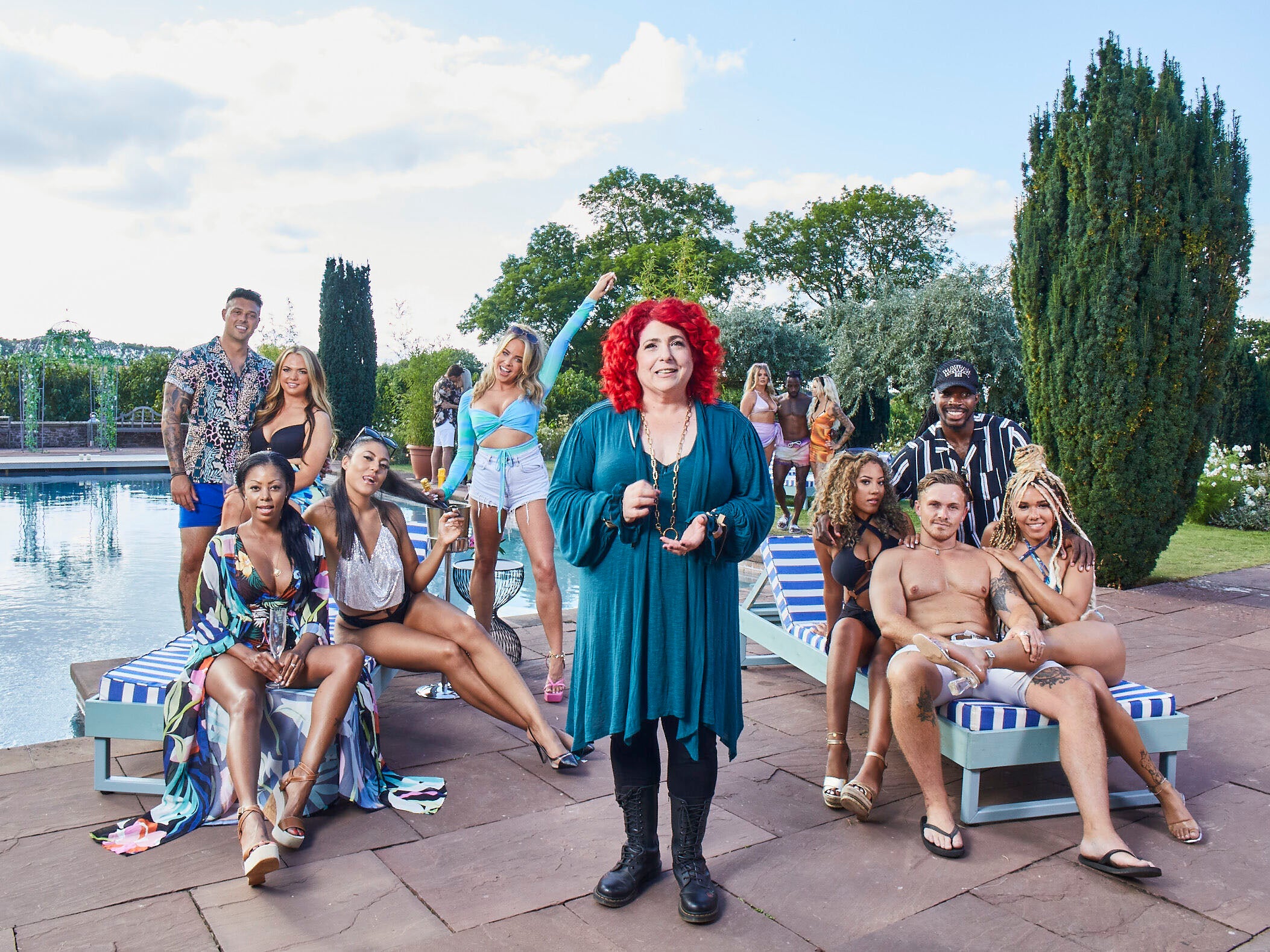I’m a relationships expert on The Great Sex Experiment – here’s why the show is so important
The series highlights how infrequently typical monogamous couples talk about sex in a way that leads to getting desires met, and how many people don’t even know what they desire


Your support helps us to tell the story
From reproductive rights to climate change to Big Tech, The Independent is on the ground when the story is developing. Whether it's investigating the financials of Elon Musk's pro-Trump PAC or producing our latest documentary, 'The A Word', which shines a light on the American women fighting for reproductive rights, we know how important it is to parse out the facts from the messaging.
At such a critical moment in US history, we need reporters on the ground. Your donation allows us to keep sending journalists to speak to both sides of the story.
The Independent is trusted by Americans across the entire political spectrum. And unlike many other quality news outlets, we choose not to lock Americans out of our reporting and analysis with paywalls. We believe quality journalism should be available to everyone, paid for by those who can afford it.
Your support makes all the difference.Since Open House: The Great Sex Experiment aired, I have been asked if I am against monogamy. I am not for or against any relationship style – I am pro-choice. But the only way people can make a choice is if they know what the options are for relationships.
Humans have only been mostly monogamous for about the past 1000 years. Some scientists believe this was because males were protecting their progeny from other males who would kill the children to mate with the mothers. Others believe it was because of the move to patrilineal societies where inheritance was passed down the male line. Humans do not naturally mate with the same person for life – this is a social construction.
As society has become more focused on the nuclear family, monogamy has become more difficult to sustain; hence the 42 per cent divorce rate and the decrease in people marrying in the first place.
The relationship advice we’d traditionally recieve from family and friends now often takes a back seat in favour of connections on the internet with people who like the things we do, believe the things we believe and do things as we do them. Therefore, we are exposed to far fewer dissenting ideas and advice that’s far less varied. To put it simply, the emotional skills we would have historically learned in larger communities to get along with people who are different from ourselves are not learned at home.
We learn what we see growing up and what we see becomes our normal. If our monogamous parents never talk about sex, love, or demonstrate any affection, then that is the model we adopt if only by osmosis. Many of us don’t question our understanding of emotions, relationships, coping and sex until our lives are in a mess. Some of us continue to assume that our way is the one true way, and spend time trying to convince others to conform.
So, what does all this have to do with watching some people open up their relationships sexually on the telly? That’s simple: you learn about difference and choice by seeing it. Couples on the show are seeking to open their relationships for different reasons. Some have chosen to do so because they have always wanted to have more sexual variety in their relationships, and they see the possibility of enriching their committed partnership by opening it up, with consent.
Others want more emotion or romance in their relationships and don’t expect their partner to meet all their needs. All of the contestants had fantasies about what this would be like and none of them had the information and skills they needed to make the process a smooth one, prior to the show.
The series highlights how infrequently typical monogamous couples talk about sex in a way that leads to getting desires met, and how many people don’t even know what they desire. Too often, people are missing the skills needed to have the best relationships and to make those relationships last. On the show and in my consulting room, I highlight skills, teach them, and give people the opportunity to practice them.
To keep up to speed with all the latest opinions and comment, sign up to our free weekly Voices Dispatches newsletter by clicking here
Emotional skills – like knowing how to soothe yourself when things are really upsetting and intense or knowing how to compartmentalise when it is appropriate and then how to express your emotions when it is convinient to – are essential to daily life, no matter what type of relationship you choose or if you choose to have a relationship at all. The first essential skill is self-awareness: to move forward, you must be aware of your own issues, responses, strengths, and weaknesses.
Relationships are meant to have lots of joy in them. Choosing to explore consensual non-monogamy increases the opportunities for joy when you have the tools to make it work. Ultimately, it is our ability to be self-aware, and our emotional, social and communication skills that help us to create and maintain all types of relationships – whether they include sex or not.
Working on yourself, sharpening your skills, and learning to take accountability are all pre-requisites to incredible relationships that last – be they monogamous or non-monogamous ones. We do things to maintain our bodies and to maintain our careers – if we want to excel in our relationships, we need to do the work on them as well. Ultimately, we need to normalise getting help for our relationships if we want to reverse the trend of dissatisfaction and divorce.
Whether you choose to have open relationships or a more traditional one, prioritise gaining the skills to make them outstanding for all partners.
Dr. Lori Beth Bisbey is a psychologist and intimacy and sex coach on Open House: The Great Sex Experiment
Join our commenting forum
Join thought-provoking conversations, follow other Independent readers and see their replies
Comments